Right-of-Way on Private Road - Who Pays to Maintain?
Just bought a house. Asked the previous owner about the private road it is on. She said the man who lives past us owns it and maintains it. We are the only two houses on the road.
So, the neighbors (aka road owners) stopped by with brownies yesterday. They told us they have owned the property for 35 years and built their house 11 years ago (our house is approximately 50 years old). They said they have maintained the road always, but hinted at "the town so-and-so said we should probably have some kind of agreement with the neighbor (us)" and "I'm retiring now and I've been doing it all these years" and "we can talk about it later."
Part of me wants to throw the guy some money, but part of me feels like a sucker. I mean, maybe he has approached previous owners and they blew him off (he said he's known all three) or maybe he's just getting up the guts to approach us? I don't know. My question is: What is the right thing to do, ethically as well as legally?
Comments (29)
LOTO
10 years agoI am surprised that your loan cleared underwriting without a recorded road agreement.
So is the road is actually on the neighbors property or yours?This post was edited by LOTO on Mon, Nov 25, 13 at 10:33
Related Professionals
Keansburg Architects & Building Designers · Lexington Architects & Building Designers · Spring Valley Architects & Building Designers · Albany General Contractors · Annandale General Contractors · Bowling Green General Contractors · Brownsville General Contractors · Kemp Mill General Contractors · Klahanie General Contractors · Lighthouse Point General Contractors · Manalapan General Contractors · Summit General Contractors · Seattle Home Stagers · Post Falls Home Stagers · Washington Interior Designers & Decoratorsalisonn
Original Author10 years agoHe made a point of saying that he owns the road and that our right-of-way is in our deed. I don't really understand how our house was there first and he owns the road, but that's the way it is. We just closed and haven't received the deed yet.
nancylouise5me
10 years agoA lot could have happened in the 50 years since your home was built. Change of owners, change of plot layouts. Surveys can be messed up. Anything really. I've seen it all watching our local planning board meetings on TV and having friends in local government. If he asks I would just help out with the maintenance of the road. It's the neighborly thing to do. NancyLouise
c9pilot
10 years agoI have friends on a private road with about 6 homes that all contribute evenly to maintenance, snow plowing, etc. They all resent the guy at the end, because he runs some sort of business out of his house and has trucks running up and down all day, wearing down the road faster, where everyone else just has light vehicles. They were trying to get him to pay more, but I don't think they got anywhere with that.
We used to own a house on a private dirt road sharing with about 8 neighbors, all in a line, that required grading, watering, snow plowing. We all paid according to how far down we were. IOW, the first guy next to the city road paid the least, and the guy at the end paid the most because he used the entire length.
The only weird thing is there was an easement for the cattle in a nearby ranch to run down the road once a year. We all pitched in to pay to have the road sprayed down with water before they ran by to keep the dust down.debrak2008
10 years agoI understand that in many areas attorneys are not required to purchase real estate. While it does same time and money to me it is not worth it.
By the fact that you are asking this question I assume you did not have an attorney. A good attorney would be looking out for stuff like that.
It doesn't matter what the seller said or the road owner said, what matters is was is legally documented.
Dh sometimes talks about moving out of new york state. If we ever move I would make sure to have an attorney for any real estate deal. Even if it is not required or usual to do so.
Sorry I don't have any I ideas for you except get an attorney now to straighten this out.
This post was edited by debrak2008 on Wed, Nov 27, 13 at 11:00
stolenidentity
10 years agoDitto what nancylouise said about being neighborly.
The driveway to my home requires an easement through another property and is shared with another home so the easement allows access for two homes. The owner of the easement does not have a home, just a wooded property on the street, so there is no way to get home without accessing that parcel. I would never expect the owner to maintain the driveway just because he owns the land beneath it.
The access is clearly stated in the deed and the easement is the only legality that exists regarding this access. There is no legal verbage discussing who does what and or who pays. Maintenance is shared by the users of the driveway. That is being a good neighbor.
tishtoshnm Zone 6/NM
10 years agoYou do not state what kind of road it is. Is it a dirt road or paved? Is snow plowing needed?
In our subdivision, there was technically a road maintenance agreement but it is very loose for our dirt roads. Some people feel that they have no obligation to contribute money for plowing, grading, or more gravel. It certainly leads to some resentment from those of us who do contribute. There are people within the subdivision who have the equipment to help with clearing the snow and discing the road but even though they have the equipment, fuel is still expensive. Whenever I see our neighbor on his 4-wheeler clearing the road, we try to take him $10-$20 to help cover his fuel costs. It makes for good relationships and his family should not bear the burden alone.
In your shoes, I would not feel like a sucker for giving money for helping with the road maintenance, I would feel that I was paying for services that I benefit from.
alisonn
Original Author10 years agoIt is a gravel road. Two other houses have driveways off of the road, I just realized, even though their addresses are on the main road. The road owner doesn't seem to have an agreement with anyone--I guess he's trying us out. Maybe he's asked the previous owners of our house and the others in the past and they turned him down? Or maybe he's starting with us? I don't know. It was a little weird how the woman who sold us the house acted like she didn't know them when we asked about them - "Don't know them, never see them" -- yet the man and his wife referred to the former owner by name, as if they were on a friendly basis--strange.
I guess I'm annoyed because I asked and was told that the guy maintained his own road. If I was told the cost was shared, I would have been able to take that info into consideration (among other factors) before buying. Also, the previous house we owned came with no association fees and association fees came into being (for the whole neighborhood) within a couple of months of us moving in, so it's kind of like "Well, here we go again." Yes, we used a lawyer, btw. I did tell my husband when I heard the guy maintained the road that we should "throw him a couple of hundred bucks and a bottle of wine at Christmas," so I did consider the fact that I am benefitting from him keeping the road in repair and plowing the snow.
debrak2008
10 years agoIf you used an attorney they should have noticed this as an issue and addressed it.
scrappy25
10 years agoSounds like your new neighbor has been a really good soul all these years and it is easier to approach a new owner than to change things with an old owner. He was probably getting increasingly resentful that your seller never offered to help out. Sounds like your seller was pretty oblivious and your new neighbor is the salt of the earth. Good thing that you don't have your seller as your new neighbor. Count yourself lucky and split the work or cost.
camlan
10 years agoMy guess is that since the owner is retiring, he's looking for ways to spend less money. Getting the other people who use the road to help maintain it seems like a reasonable way to do this. And he probably figured he'd just wait until new owners moved in, instead of asking the old owners, who he hadn't ever asked for money before.
In the OP's shoes, I'd contact the guy and ask how much he spends on maintaining the road per year, on average. Then I'd figure out how much of the road I used, as c9pilot says. Then offer to pay that amount--say you use 1/4 of the road's length, then maybe paying 1/4 of the maintenance cost per year is reasonable.
But I'd also ask if the other two homeowners would be chipping in, as well. I don't think it would be fair for you to pay and for them not to pay.
berniek
10 years agoYou and your attorney should have reviewed all title documents during your title review period. Your attorney should have questioned ownership and maintenance requirements for the easement. There should have been a permanent easement document to include a survey showing the location of the easement.
It looks to me that your attorney did not advise you correctly.detroit_burb
10 years agodon't assume a thing.
if he owned the property for 35 years, did he at one time own your home and divide off for his new property? Find out what the history is first. He may have made a deal with the municipality to be able to build at the end of the road and he may be liable for the road maintenance as part of that deal. This may explain why there are no formal agreements with other users, no agreements may be needed as it may be the condition of using the land the way he did.
Get the township records.
This post was edited by detroit_burb on Tue, Dec 24, 13 at 17:15
Gary Biz
5 years agoI realize this is an old conversation, but I'm going to comment anyway. I've spent several days researching easements and road agreements in the past week. I already had considerable person experience (both good and bad) with easements and road maintenance agreements regarding properties in the Pacific Northwest. I do not know what state alisonn lives in, however, I do know that states generally place the burden for maintaining roads on the dominant estate holder -- the person who benefits from a road easement. I realize that the document that created alisonn's easement might have different wording, but that doesn't change the fact that she is using someone else's land to reach her own and, thus, might have taken a more generous position. Instead, she wonders if the land owner, the servient estate holder, was trying to abuse her. She gets the benefit of using his land, he pays taxes on land he can't use because of her easement, and she also wants him to maintain the road surface for her so she doesn't have to. Who's abusing whom?
bry911
5 years agoI do know that states generally place the burden for maintaining roads on the dominant estate holder -- the person who benefits from a road easement.
The burden for maintaining an easement is generally the dominant tenant, which is the person for whose benefit the easement was created. This isn't necessarily the person who benefits the most from the easement.
However, private roads are usually a bit more complicated. Generally, the fee owner of the road is the person who must maintain it. Which means the owner of the road rather than the grantee of the easement. The general logic behind this is that the person who built the road is most likely the person who subdivided the lots, and the value of that subdivision was created or increased by the road and thus its maintenance generally defaults to the person who owns the land the road is on.
When there is no clear ownership of the road, such as all properties are subdivided without the road, then each owner typically maintains from edge to edge of their property to the center line of the road, for each portion of road abutment. Thus if you own property on one side of the road and not the other you have to do only to the center line, if the road passes through your property you have to maintain the entire road from property line to property line.
All of this can be modified with the easement itself. So these rules generally govern when there is no easement recorded, or the recorded easement lacks specificity.
Having said all of that, these things often come down to some equitable solution when they actually get litigated. There is usually enough wiggle room in this for the judge to ensure that a road for 40 mansions isn't maintained by a little old lady living in a rundown shack.
Just FYI
violetsnapdragon
5 years agoUpdate: I am the original poster. The road is gravel and I make an effort to go to my neighbor's (the road owner) gravel pile with my wheelbarrow and fill holes in the road. I take umbrage to the "who's abusing who remark," because, my question was, "If he owns the road, is he responsible for its upkeep?" I felt that when he seemed to be hinting around (possibly for cash), that he was "taking advantage," because he knew he was legally responsible, but thought I might not know that. I don't mind filling the holes--it's good exercise and it's neighborly. I was taken aback by his request, especially in light of the fact (discovered later), that he never approached any of the other neighbors about kicking in for the upkeep of the road. And, to be fair, if it was me and I bought property knowing that I owned the road and was responsible for its upkeep, even though the neighbors have right-of-way, I would expect to be solely responsible for the cost of the upkeep. Perhaps knowing this, I would not buy such a property but, if I did, I would not be soliciting funds from the neighbors after the fact.
maire_cate
5 years agolast modified: 5 years agoThanks to the OP for the update. Even though it was an old thread I found the topic interesting and I thought you had the correct understanding of your neighbor's intent. A Right of Way can be tricky and I'm sure the laws vary by state.
We have a 135 acres in the woods and the neighbor on one side of us has a 1 acre lot that abuts the main road. We have separate driveways but when we bought the property 20 years ago we didn't know that his driveway was on our property until he mentioned it one afternoon. We called the title company and when they checked his deed discovered that he did have a right of way for ingress, egress and regress. They failed to check his deed when researching our title and the right of way wasn't in our deed.
DH was concerned about liability if something were to happen in the driveway. We had our attorney contact our neighbor and we offered to give him the property where the driveway was located. He turned our offer down and said that as long as I owned it then I had to maintain it and if a tree fell then I had to remove it. Luckily nothing happened and he eventually moved away. When the new owners moved in they were happy to take ownership of the driveway and even split the cost of the survey and title changes.
I'm glad that issue is resolved but it can definitely cause problems for neighbors.
violetsnapdragon
5 years agoBoy--that was a blatant response from the neighbor! He could have just said, "No, thank you."
meralarue
4 years agoI own a camp on a camp road in Maine. About 80 acres around me used to be a farm, which was subdivided 50+ years ago, with no legitimate “road“ put in. There are three actual owners of a road that we all use to access our properties (9 lots). The major problems are: Road was never built to any specification and what was built years ago has been patched and band-aided for years. About thirty years ago, a large campground became owners at top of road access, taking land and about 2/3 of road - at the top of our steep hill, with RVs weighing up to 30,000 lbs, business open April 1 to Nov 15. No road association. For years resentment grew and it was inequitable as to who contributed to road maintenance, although over the years each of the 9 lots’ deeds indicated all were responsible for maintenance. I purchased four years ago and my lawyer and company did not do their jobs well. Had I known these issues, I would never have bought the property.
I am struggling to get a road association started. 60% of us are deadbeats, 20% are too old/too poor, and 20% are motivated. I’m not s toad owner, but I’m second to last on the road. I’m willing to pay my fair share, but not if I’m the only one. The campground owner (remember, s-#t flows down steep hills), neglected to listen when he purchased the campground. He was told he would have to maintain the crown of the road and drainage ditches alongside it to certain specifications, or the road would wash away (dirt with little gravel). He changed his campground opening to April 1, in the absolute beginning of mud season. On April 15, he tried to have a 30,000 lb RV drive down and up the hill. He destroyed the road, making it impassible for days. He still has not fixed it properly and says he won’t unless we all pay, too.
I’ve got 11 estimates to fix road, from doing it right ($25-30,000), to a band aid ($13,000), to almost nothing - ($4,000). I sent out a letter to all, asking us to meet to discuss. Informal feedback is not many will show up. Can those that go show up decide to force the others to pay for reasonable work, or put liens on properties?
Stressful is beyond the word.summersrhythm_z6a
4 years agolast modified: 4 years agoYou could give his campground a review, just mention about the road condition for RVs with photos. That would turn a lot of RVs away. No one wants to be stuck in mud while driving/towing a RV. That should get him going to fix the road if he wants his profit from RV campers.
new-beginning
4 years agowould be even better if you could get several folks from out of state to do the same.
bry911
4 years agoIn my opinion, the review idea is bad and approaching unethical. It is just a different flavor of extortion and is just as likely to decrease cooperation as increase cooperation.
In my opinion it is time for some type of mediation. If you can get everyone to just agree to it then fine, if not you may have to sue everyone to get them to the table. It isn't going to make anyone happy, but that is just the way it is. However, these things often don't work out as you believe they should.
Was this problem not apparent when you bought the property four years ago? That can turn out to be a problem for you, if they can demonstrate that you knew the maintained condition of the road at purchase and are trying to add specifications to that maintained condition after the purchase.
In the end, the best thing for everybody is to have a formal written solution. Which isn't going to happen without a lot of prodding or action.
summersrhythm_z6a
4 years agoBry911, He would be doing a good deed to RV campers if the road condition is truly bad. Photos should attached, so it’s totally true . We got stuck in the mud once with a RV, it wasn’t a good experience. I view this as a good deed from RVers point of view. The road condition should be safe for RVs to pull through without being stuck. Hopefully you could see it from campers view.
Gary Biz
4 years agoBry911, you write with authority. Are you an attorney? If you are correct and I'm wrong, will you please cite a case or two that proves "fee owners" of the land must pay for maintaining private roads across their land. I've not seen that nor have I seen "fee owner" applied to a road easement discussion before. I'm curious to know what region of the country that language comes from.
Here's a simple definition of "fee simple" ownership: A fee simple represents absolute ownership of land, and therefore the owner may do whatever he or she chooses with the land.Granting an easement over land changes things. No longer can the fee simple owner -- the servient land owner -- exercise "absolute" authority over his or her land. Certain rights have been granted to the easement holder or holders.
How easements are governed varies from state to state, so trying to provide a one size fits all answer to this question is not possible. That said, I stand by my earlier statement about the responsibilities of land owners regarding private road maintenanceIt is , noting as a qualifier my West Coast experience. If bry911 or someone else has different information -- case law would be helpful -- we will all benefit from your expertise.
I do not believe, however, that the legal terminology changes depending on region of the country. The legal term used to define the estate -- or property -- that holds an easement over another property is the "dominant estate."
The land the easement crosses is the "servient estate." On the West Coast, and elsewhere across the U.S., it is generally held that the servient estate owner must not do anything that prevents the dominant owner from using the easement. Also, it is my understanding that states across the U.S. do not normally hold the servient estate solely responsible for maintaining a private road used by a dominant estate.
Costs are normally shared on an equal basis by those who use the road. Costs could fall entirely to a single dominate estate or be shared with others who also use the road to access their properties. When private roads exist, there should be a road agreement that is part of the recorded title documents. Its job is to spell out who is responsible for what. Sadly, road agreements are often non existent or so poorly worded as to be mostly useless for preventing disputes. My first question to alisonn should have been: Is there a road agreement attached to your title documents?
It is important to point out that limits generally apply to the rights of the dominant estate. For instance, if you are the dominant estate holder and want to pave your gravel private road, you most likely can't unilaterally decide to pave; you need the servient estate holder's permission. You also can't expand or alter the easement or use it for anything other than the rights granted, which often means ingress and egress only. What those who use private roads often fail to realize is that they are crossing land that does not belong to them in order to access their own homes.
In my experience, most private road problems arise because people purchase property burdened with easements and they don't realize what that means. Clashes arise when the law rises up and smacks their uninformed expectations on the nose.
We buyers often get excited about our new home or new land and don't read the title documents carefully, nor do we ask about the details concerning such things as easements, private roads and road agreements.
My wife and I learned the hard way with land and home purchases in the Pacific Northwest that it is important to do one's own research before buying. Now, we ALWAYS look closely at the title documents before buying property. They can be obtained by title companies and from county records. We also knock on the doors of potential neighbors and ask questions before we buy … and we especially want to know about easements.
Why are we so careful? Because we ended up in a three-year battle over an easement that went to the Washington State Supreme Court and set legal precedent regarding easement use. That was a high five-figure educational experience. Also, we've found that easements and boundaries are commonly abused, often unknowingly, but that still doesn't make things easier when a new owner has to deal with them.bry911
4 years agolast modified: 4 years agoGary Biz.
I don't really want to rehash a discussion from 6 months ago. However, in reading what I said it isn't clear that I was talking about when there is no clear dominant easement.
As for cases... look up Borgel v. Hoffman and the opinion will give you several precedent opinions.
Fee simple, is simply a type of ownership that notes you own the land rather than simply usage rights. There are only three types of ownership (1) fee simple, (2) leased fee, and (3) leasehold. It doesn't give you absolute power over your land, nor does an easement suddenly make fee simple ownership a leasehold. You will note in my post I said nothing about fee simple. I said fee owner. As my post would apply to both fee simple and leased fee.
Most of the rest of your post is dealing with a specific situation of an existing easement where the focus is on establishing dominance and the rather obvious part that you can't interfere with an easement. The problem with many private roads is it very often isn't that clear.
The problem with all easements is the problem with deed and contractual obligations altogether. They are only worth the money you will spend to enforce them. Usually they end up in mediation and a legally enforceable compromise gets worked out because no one wants to spend the ridiculous money required to be right.
I am a bit busy right, now and I really don't want to hash this out with you. I will try to give you a more robust answer later if you really need one. But do you object that the best course of action for the current problem is probably trying to get something in writing?
meralarue
4 years agoI completely agree. However, getting nine other people to agree is going to be the challenge. When six have done nothing, it’s difficult to get them to ante up. I’d much rather spend money on road than on a lawyer.
bry911
4 years agolast modified: 4 years agoHowever, getting nine other people to agree is going to be the challenge. When six have done nothing, it’s difficult to get them to ante up. I’d much rather spend money on road than on a lawyer.
Which is the real problem with these things, and honestly, once you have the agreement the battle probably isn't over. Establishing a commitment is very different than cashing a check. Some people with very clear responsibilities are not going to pay, then you are going to be faced with this same problem all over again.
I would urge you to strive for a favorable result rather than a fair result.
ETA: For some clarification. You can spend an uequitable amount of money and time chasing an equitable solution. So ask yourself if road maintenance were solely your responsibility and your discretion, would you repair the road for $13,000? If the answer is yes, then I would suggest working to get people to lessen your payment rather than worrying about their share.
Just my 2 cents...
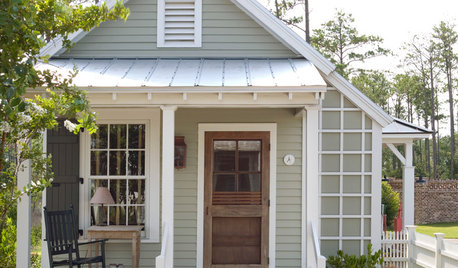
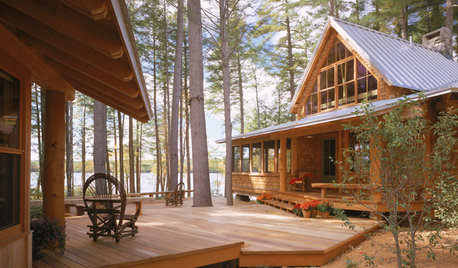

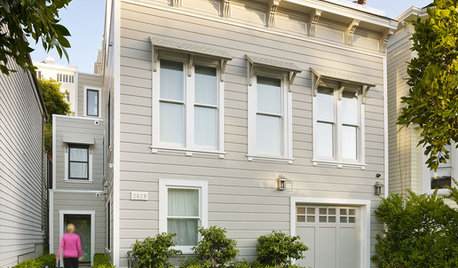
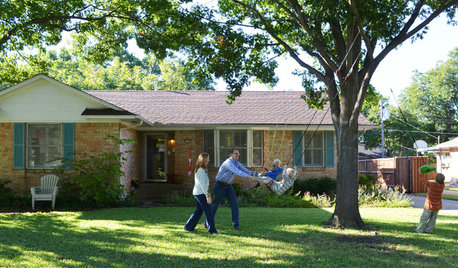
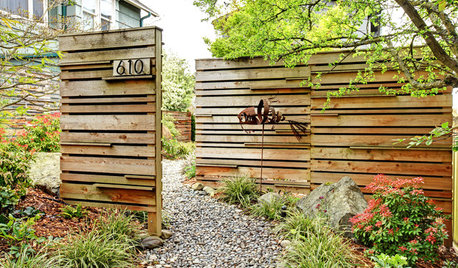













nancylouise5me